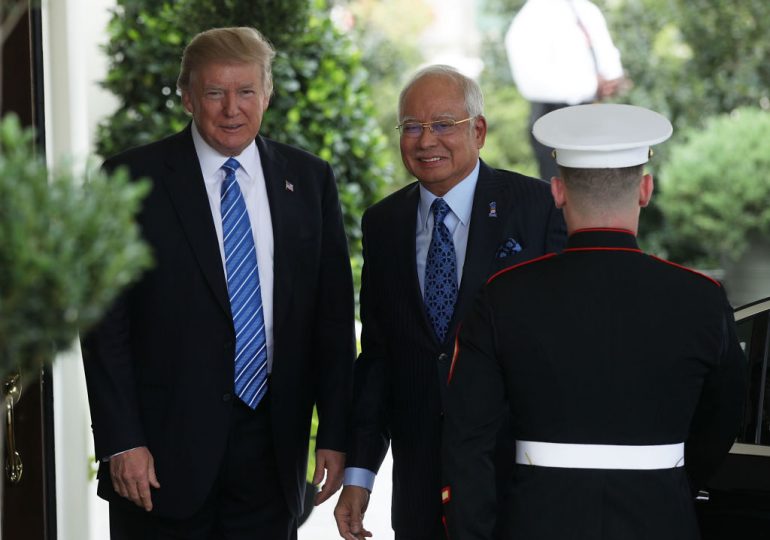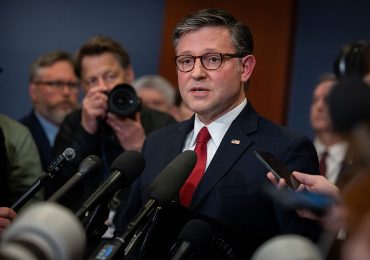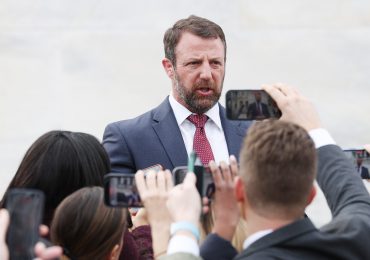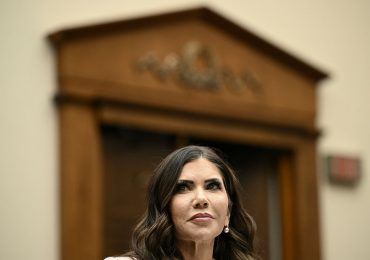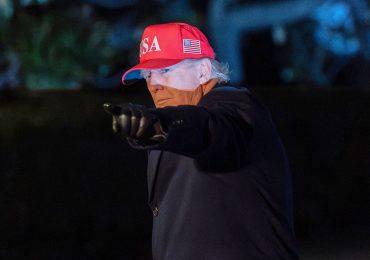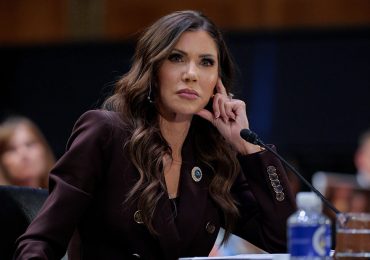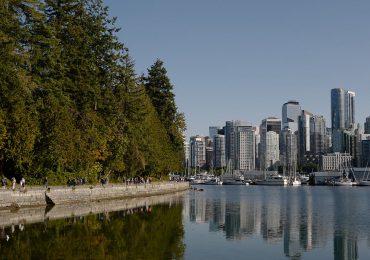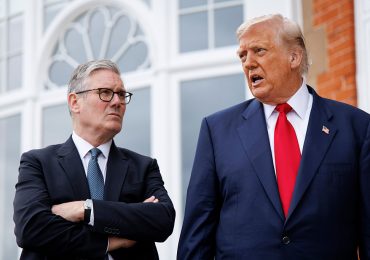Donald Trump made U.S. history Thursday as the first former President to be criminally convicted after he was found guilty by a Manhattan jury of 34 counts of falsifying business records related to hush money payments to a porn star. But compared to his counterparts around the world, Trump’s not alone, joining a long list of heads of states who have been found guilty of crimes, ranging from corruption to abuse of power.
[time-brightcove not-tgx=”true”]
Read More: Republicans and Democrats Try to Cash In on Trump’s Conviction
Here are some other countries that have convicted their former leaders, and what happened to them:
Argentina
Former President Cristina Fernandez de Kirchner, who led the country from 2007 to 2015, was sentenced to six years in prison and banned from holding public office in 2022, after being convicted in a billion-dollar fraud case. Fernandez de Kirchner, who said that she would appeal the verdict, continued to serve as Vice President until her term ended last December.
Brazil
Luiz Inacio Lula da Silva, Brazil’s incumbent President who previously led the country from 2003 to 2010, was jailed in 2018 for corruption. However, he had his charges overturned in 2021, which allowed him to run for the presidency in 2022.
Read More: Lula Talks to TIME About Ukraine, Bolsonaro, and Brazil’s Fragile Democracy
Croatia
Ivo Sanader, who served as Prime Minister from 2003 to 2009, has been in jail since 2011, having been extradited after fleeing the country and sentenced to prison in a series of convictions including for corruption and war profiteering.
Egypt
Along with his two sons, former dictator Hosni Mubarak was sentenced to three years in prison in 2015 for embezzling state funds. Mubarak, who was ousted during the Arab Spring in 2011, was also convicted for inciting the killings of protesters—though he was acquitted of that crime and released in 2017. He died in 2020.
Read More: Why the Arab Spring Failed—And Why It May Yet Succeed
France
Jacques Chirac, who served as President from 1995 to 2007, was handed a suspended two-year jail sentence in 2022 after being convicted of corruption. He died in 2019.
Nicolas Sarkozy, who succeeded Chirac as President from 2007 to 2012, was found guilty of bribing a judge with a job to access confidential information involving another trial. He was handed a three-year prison sentence in 2021—two years suspended and one served under house arrest—which was upheld despite Sarkozy’s appeal. In February, Sarkozy also lost his appeal against a six-month prison sentence for overspending in his 2012 reelection campaign and illegally charging it to his party.
Georgia
Former President Mikheil Saakashvili is currently serving a six-year prison sentence after being arrested in 2021. He had been convicted in absentia of abuse of power, including for ordering riot police to beat up an opposition member of parliament in 2005 and pardoning four officials who had killed a man.
Israel
Former Israeli President Moshe Katsav, who served from 2000 to 2007, was sentenced in 2011 to seven years in prison for raping an aide while he was a minister in the 1990s and sexually harrassing two women while he was President. He served five years before being released in 2016 on parole.
Ehud Olmert, who was Prime Minister from 2006 to 2009, was sentenced to 27 months in prison in 2016 for fraud. He was released in 2017 after serving part of his sentence.
(Israel’s current Prime Minister, Benjamin Netanyahu, was indicted in 2019 in a series of charges including for fraud, bribery, and breach of trust, and his trial continues amid the country’s war in Gaza.)
Italy
Four-time Italian Prime Minister Silvio Berlusconi, who died last year at 86, has been charged in over 30 criminal cases, though he only had one lasting conviction. He was found guilty in 2013 of paying for sex with a minor, but his conviction was overturned in 2014. He was also acquitted of tax evasion, bribing judges, and corruption—though in some instances the acquittals came after his administration changed the law such that his initial charges no longer constituted a crime. In other cases, he was convicted but managed to evade serving his sentence because the statute of limitations had run out.
In the only punishment he could not evade, he was sentenced to one year of community service—thanks to Italy’s lenient penalties for the elderly—in 2014 for tax fraud related to his media company.
Malaysia
Former Prime Minister Najib Razak, who led the country from 2009 to 2018, was found guilty of corruption in the multibillion-dollar 1MDB scandal and sentenced to 12 years in prison—though his term was later halved. He has been in prison since 2022, and remains on trial for other charges related to 1MDB, the state development fund that was used to funnel over $4 billion to accounts linked to Najib.
Read More: Voters in Malaysia Jaded by Corruption Charges Are Turning More Toward Identity Politics
Myanmar
After Myanmar’s military seized power from the country’s elected civilian government in a 2021 coup, Aung San Suu Kyi, who had been the State Counsellor since 2016, was convicted of multiple charges including corruption, election fraud, and breaching a state secrets law. She is serving a combined 27-year prison sentence for the charges, and was moved to house arrest in April amid a heat wave and concerns about her health.
Read More: Why Southeast Asia Just Can’t Seem to Cut Off Myanmar’s Junta
Pakistan
Former Prime Minister Imran Khan is currently in jail on convictions of corruption and leaking state secrets. The convictions, which came in January ahead of a national election in April, was decried by Khan and his supporters as politically motivated.
Read More: Pakistan’s Military Used Every Trick to Sideline Imran Khan—and Failed. Now What?
Peru
Former President Alberto Fujimori, who ruled the country from 1990 to 2000, was released from prison last December after spending over 15 years incarcerated for human rights violations and abuse of power. He was convicted on charges including bribery, embezzlement, and sanctioning the killing and kidnapping of anti-government guerrilla fighters and activists.
South Africa
Jacob Zuma, who served as President from 2009 until he was forced to step down due to corruption allegations in 2018, was sentenced to 15 months in prison in 2021 for contempt of court, after he refused to testify during an investigation into corruption in his administration.
South Korea
Lee Myung-bak, South Korea’s President from 2008 to 2013, was sentenced to 17 years in prison in 2020 for bribery and embezzlement. However, he had his prison term cut short after being granted a pardon in 2022 by current President Yoon Suk-yeol.
Park Geun-hye, who took over as President from 2013 but was impeached in 2017 amid a landmark corruption scandal, was sentenced to 15 years in prison for bribery and coercion. She was similarly pardoned in 2021.
Sudan
In 2019, former President Omar Hassan al-Bashir was sentenced to two years in a social reform facility—a treatment reserved for elderly offenders like then-75-year-old Bashir—after being convicted of corruption. He is also facing an ongoing trial related to a 1989 coup that brought him to power—which he has publicly taken responsibility for—for which he could, if found guilty, receive the death sentence.
Taiwan
Former President Chen Shui-bian, whose term ran from 2000 to 2008, was sentenced to life imprisonment in 2009 for embezzlement, money laundering, and bribery, but later had his sentence reduced to 20 years through appeal. He was released on medical parole in 2015.
Thailand
Former Prime Minister Thaksin Shinawatra, who led Thailand from 2001 to 2006 and fled after he was deposed in a military coup, was convicted in absentia of abuse of power. He was jailed upon his return from self-exile last August, but was released on parole in February.
His sister Yingluck, who served as Prime Minister from 2011 until she was similarly ousted and went into self-exile in 2014, was sentenced to five years in prison in 2017 for criminal negligence—the court found that she had mishandled a rice subsidy scheme that led to billions of dollars in losses. However, while still living abroad to avoid detention, she was cleared in March.
Leave a comment
